- Biggest-Selling Rock LP of 2024
- REO Speedwagon Ending
- Tesla's Financial Hole
- 25 Worst Beatles Solo Albums
- Tom Hamilton's New Band
- 30 Sad Holiday Songs


Why Journey Never Accepted the ‘Corporate Rock’ Tag: Book Excerpt
An expansive new biography of Journey is on the way from UCR assistant managing editor Nick DeRiso that promises to delve into " every era, every album and every tour ."
Available for ordering now , 'Journey: Worlds Apart' features dozens of interviews with key contributors including Neal Schon , Gregg Rolie , Jonathan Cain , Steve Smith, Deen Castronovo , Steve Augeri and others. Among those offering wider perspective are collaborators like John Waite , Prairie Prince, Jeff Scott Soto, Marco Mendoza and Jan Hammer, as well as stalwart road manager Pat Morrow, former 'Rolling Stone' contributing editor David Wild, original MTV VJ Martha Quinn, album-cover artist Stanley Mouse, and Joel Selvin, the longtime San Francisco music writer who covered Journey almost from the beginning.
The group started as a dream for former Santana road manager Herbie Herbert, who thought he could build a blockbuster band out of the group's post-Woodstock remnants with Rolie and Schon. Turns out, he could – but it would take a few albums, and the arrival of frontman Steve Perry . When Rolie exited at the turn of the '80s, Journey was already a multi-platinum band – and they would only get bigger with the addition of Cain from Journey's former opening act, the Babys .
Then critics began describing Journey as "corporate rock." In the following excerpt from 'Journey: Worlds Apart,' DeRiso sorts through how that happened with Cain, Wild and others:
By the time Journey released Frontiers , they were as much a company as a band. Manager Herbie Herbert founded related subsidiaries to handle every aspect of their recording and touring operations. The vested members voted on major decisions board-room-style.
Then critics began using the label “corporate rock” as a cudgel against Journey.
Herbert was helping to rearrange the DNA of rock, bringing in business concepts to a culture that had essentially run on nothing more than sex, drugs and a few power chords. The members of Journey were partners in these commercial entities, but they weren’t equals. The vision, everyone openly admitted, was all Herbert’s.
“Not many managers started out as roadies, you know, and went through every phase of show business,” Jonathan Cain said. “Herbie had this extraordinary ability to start out as Neal Schon’s roadie and end up with a PA company, then a lighting company. Then he has this vision of video, and brings video into rock. He was an extraordinary man.”
Herbert delved into the finest details, like a shaggy-haired walking spreadsheet. Still, to some critics, it was all starting to sound more like Wall Street than Haight. A rising group of younger acts like the Ramones tried to push back, too.
Yet millions of record buyers, radio listeners, and concertgoers remained stubbornly immune to these criticisms. As decades passed, some of the same pundits would admit that they had treated the band unfairly. Time offered new perspectives.
“In that period between when I was like a young, asshole Rolling Stone writer trying to have whatever I perceived, rightly and wrongly, as credibility, I had a few experiences,” said David Wild, who later wrote the liner notes to the platinum-selling 2001 hits package The Essential Journey . He realized, for instance, that their album image choices tended to make Journey seem more faceless.
“I think there is something about the name, which seems generic and new age,” Wild said. “Like, did they ever have an album cover that had them on it? You know, the branding of it was like Yes in a different, earlier era. It was not a cult of personality; they weren’t cool with the cool crowd, for a large part of their career. There are just some bands that are more the people’s choice. But that being said, the longer I live, the more I respect people who were just simply great.”
Journey Ultimately Had the Last Laugh
Journey’s best-selling singles endured. Even songs that had not been huge hits found their place on movie soundtracks, TV shows, radio programs, and countless playlists. Genres rose and fell as time went on, even as a long-awaited critical evaluation led to Journey’s induction into the Rock & Roll Hall of Fame.
“You know, music went to flannel rock, it went to grunge rock. Rock ’n’ roll went through a lot of different phases,” Cain added. “But calling Journey corporate rock was just ridiculous because we just played a lot of shows. We wrote music that was all over the map — so did the Beatles. So what, you know? The critics just loved to hate Journey for a while. But I knew it was gonna be a passing phase, because the songs were mightier than their pen.”
The Best Song From Every Journey Album
Gallery Credit: Nick DeRiso
You Think You Know Journey?
More From Ultimate Classic Rock


Rock Music World
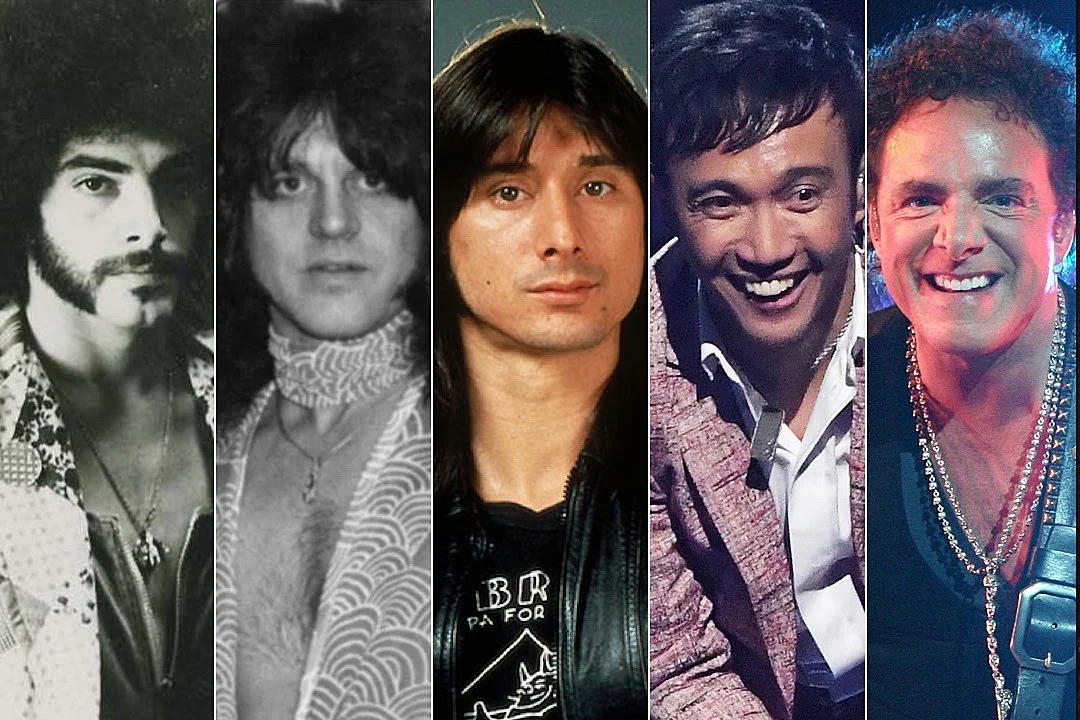
Journey Lead Singers In Order: History and Band Members
In this article, we delve into the captivating history of Journey, an iconic rock band that has left an indelible mark on the music industry. From their humble beginnings to their meteoric rise to fame, Journey has mesmerized audiences worldwide with their unique sound and timeless hits. Join us on a journey through time as we explore the remarkable story of this legendary band.
Formation of the Band
Journey was formed in 1973 in San Francisco, California, bringing together a group of highly talented musicians. The founding members included Neal Schon, Gregg Rolie, Ross Valory, Aynsley Dunbar, and George Tickner. With their combined musical prowess and creative vision, they set out to create something extraordinary.
Early Years and Musical Style
During their early years, Journey experimented with a fusion of rock, jazz, and progressive influences, creating a distinctive sound that set them apart from their contemporaries. Their self-titled debut album, released in 1975, showcased their musical versatility and marked the beginning of their incredible journey.
Evolution and Breakthrough Success
In 1977, Journey underwent a significant change that would forever shape its destiny. Steve Perry joined the band as their lead vocalist, injecting new energy and unparalleled vocal range into their music. This lineup change proved to be a turning point for Journey, leading to a series of chart-topping albums and unforgettable songs.
Chart-topping albums and Hit Singles
Journey’s breakthrough came in 1978 with the release of their album “Infinity,” which became a massive success. The album spawned the hit singles “Wheel in the Sky” and “Lights,” propelling Journey into the mainstream spotlight. They continued their winning streak with subsequent albums, including “Evolution” (1979) and “Departure” (1980), which produced hits like “Lovin’, Touchin’, Squeezin'” and “Any Way You Want It.”
The Iconic Album: “Escape”
In 1981, Journey released their most iconic album to date, “Escape.” This album elevated their status as rock superstars and solidified their place in music history. Featuring the mega-hits “Don’t Stop Believin’,” “Open Arms,” and “Who’s Crying Now,” “Escape” became an instant classic, captivating audiences with its emotionally charged lyrics and powerful melodies.
The Power Ballad Era
Journey’s success continued into the mid-1980s, defined by the rise of power ballads that struck a chord with fans worldwide. Songs like “Faithfully,” “Separate Ways (Worlds Apart),” and “Send Her My Love” showcased the band’s ability to create heartfelt and anthemic ballads that resonated deeply with listeners.
A Change in Direction
As the 1990s approached, Journey faced challenges and underwent significant lineup changes. Steve Perry departed from the band in 1987, leading to a period of transition as they searched for a new lead vocalist. Despite these challenges, Journey remained resilient and continued to produce music that captivated its loyal fan base.
Journey’s Enduring Legacy
Although the band’s popularity waned in the late 1990s, their music never faded from the hearts of their dedicated fans. Journey’s timeless classics continue to resonate with audiences of all ages, thanks to their emotional depth, infectious melodies, and inspiring lyrics. Their songs have become anthems for perseverance, love, and the power of music itself.
Past Journey band members include the following:
- Steve Perry (1977-1998)
- Aynsley Dunbar (1974-1978)
- Robert Fleischman (1977)
- Steve Smith (1978-1985, 1995-1998)
- Randy Jackson (1985-1987)
- Steve Augeri (1998-2006)
Current Journey band members:
- Neal Schon – Guitar (1973-present)
- Jonathan Cain – Keyboards (1980-present)
- Ross Valory – Bass (1973-1985, 1995-present)
- Arnel Pineda – Vocals (2007-present)
- Deen Castronovo – Drums (1998-present)
Lead Singers of Journey
Van Halen Lead Singers In Order: A Journey Through the Years
Black Sabbath Singers In Order: Ever-Changing Lineup of Black Sabbath
The Original Journey: Gregg Rolie’s Era

Gregg Rolie, a two-time Rock and Roll Hall of Fame inductee, served as the original lead singer of Journey. He began his musical career as a co-founder and lead vocalist of Santana before joining forces with Neal Schon to form Journey. Rolie’s soulful voice and exceptional skills as a keyboardist and harmonicist contributed to the band’s early success. He showcased his talent on albums like “Journey,” “Look into the Future,” and “Next.” However, Rolie transitioned to co-lead vocals when Steve Perry joined the band in 1977.
Steve Perry: The Voice of Journey’s Greatest Hits
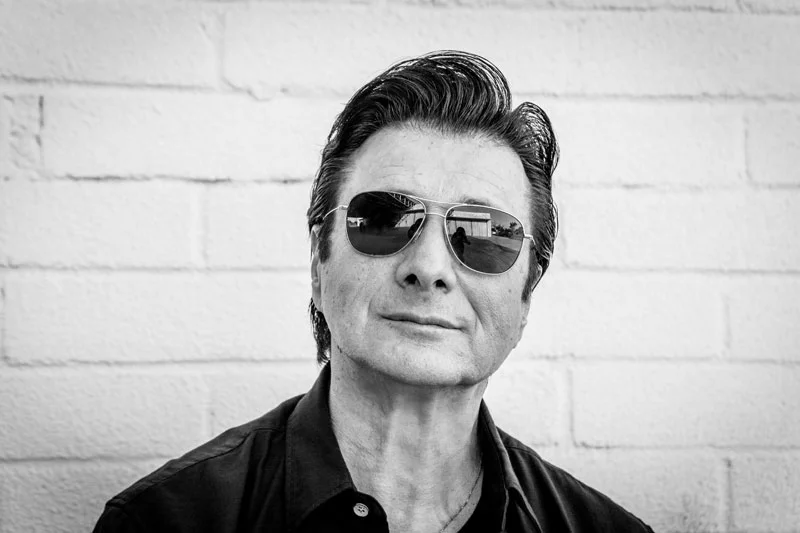
Steve Perry, widely recognized as the quintessential Journey lead singer, propelled the band to unprecedented heights during their most commercially successful era. Born with a gift for singing, Perry’s powerful and emotive vocals struck a chord with audiences worldwide. With Perry at the helm, Journey released a string of chart-topping albums, including “Infinity,” “Escape,” and “Frontiers.” Iconic songs like “Don’t Stop Believin’,” “Open Arms,” and “Faithfully” became anthems for a generation. Perry’s remarkable songwriting abilities and magnetic stage presence contributed to the band’s enduring legacy.
Current Lead Singer: Arnel Pineda

Following Steve Perry’s departure in 1987, Journey experienced a series of lead singer changes. Steve Augeri, known for his vocal range and stage charisma, took over from 1998 to 2006. Jeff Scott Soto briefly joined the band in 2006, leaving his mark with his distinctive style. However, it was Arnel Pineda who breathed new life into Journey as the current lead singer. Pineda’s incredible vocal resemblance to Steve Perry, coupled with his dynamic stage presence, won the hearts of fans worldwide. Since 2008, Pineda has seamlessly integrated into the band, injecting fresh energy and passion into their performances.
Journey’s Enduring Discography: Albums That Defined an Era
Over the past five decades, Journey has released a diverse and extensive discography, showcasing their musical prowess and creativity. Let’s explore some of their most iconic albums:
“ Infinity ” (1978): With Steve Perry as the lead singer, “Infinity” marked a significant turning point for Journey. It featured hit singles like “Wheel in the Sky” and “Lights,” solidifying their place in the rock music landscape.
“ Escape ” (1981): This album became a monumental success, boasting chart-topping hits such as “Don’t Stop Believin'” and “Open Arms.” “Escape” catapulted Journey to international stardom and remains one of their most beloved records.
“ Frontiers ” (1983): Building upon their previous success, “Frontiers” showcased Journey’s evolution with tracks like “Separate Ways (Worlds Apart)” and “Faithfully.” The album’s polished production and memorable hooks solidified Journey’s status as one of the biggest rock bands of the 1980s.
“ Raised on Radio ” (1986): Released during the band’s final years with Steve Perry, “Raised on Radio” featured a more radio-friendly sound and produced hits like “Be Good to Yourself” and “I’ll Be Alright Without You.” Despite tensions within the band, the album showcased their ability to create catchy, melodic rock tunes.
“ Revelation ” (2008): With Arnel Pineda as the lead singer, “Revelation” marked a new chapter for Journey. The album featured new recordings of their classic hits, reaffirming Pineda’s vocal prowess and rekindling the band’s popularity among longtime fans and a new generation.
“ Eclipse ” (2011): Continuing their musical journey with Pineda, Journey released “Eclipse,” a record that showcased their ability to evolve while staying true to their roots. The album demonstrated their enduring songwriting skills and featured tracks like “City of Hope” and “Edge of the Moment.”
“Escape & Frontiers Live in Japan” (2019): As a testament to their enduring appeal, Journey released a live album featuring their performances of the “Escape” and “Frontiers” albums in their entirety. The release showcased the band’s timeless hits in a live setting, capturing the energy and excitement of their concerts.
Journey’s Impact and Legacy
Journey’s impact on the rock music landscape cannot be overstated. With their infectious melodies, anthemic choruses, and powerful vocals, they carved out a unique sound that resonated with millions of listeners. Their music transcended generations, becoming the soundtrack to countless moments and capturing the hearts of fans worldwide.
Steve Perry’s tenure as the lead singer marked the band’s most successful period, and his distinct voice became synonymous with Journey’s sound. His emotional delivery and ability to connect with audiences elevated their songs to new heights and created an unparalleled legacy.
Arnel Pineda’s addition to the band injected new energy into Journey and allowed them to continue their musical journey. Pineda’s remarkable vocal resemblance to Perry breathed new life into the band’s live performances, earning him a dedicated fanbase and ensuring that Journey’s music lives on.
Journey’s timeless hits continue to be celebrated and embraced today. Songs like “Don’t Stop Believin'” have become cultural touchstones, appearing in films, TV shows, and sporting events, and capturing the imaginations of new generations of listeners.

Journey Band Member’s Ages
Here, is the list of all the Journey member’s ages. It seems like all of the Journey band members are above 50 and below 80.
Leave a Comment Cancel reply
Save my name, email, and website in this browser for the next time I comment.

Bios, band histories for the greatest in rock.
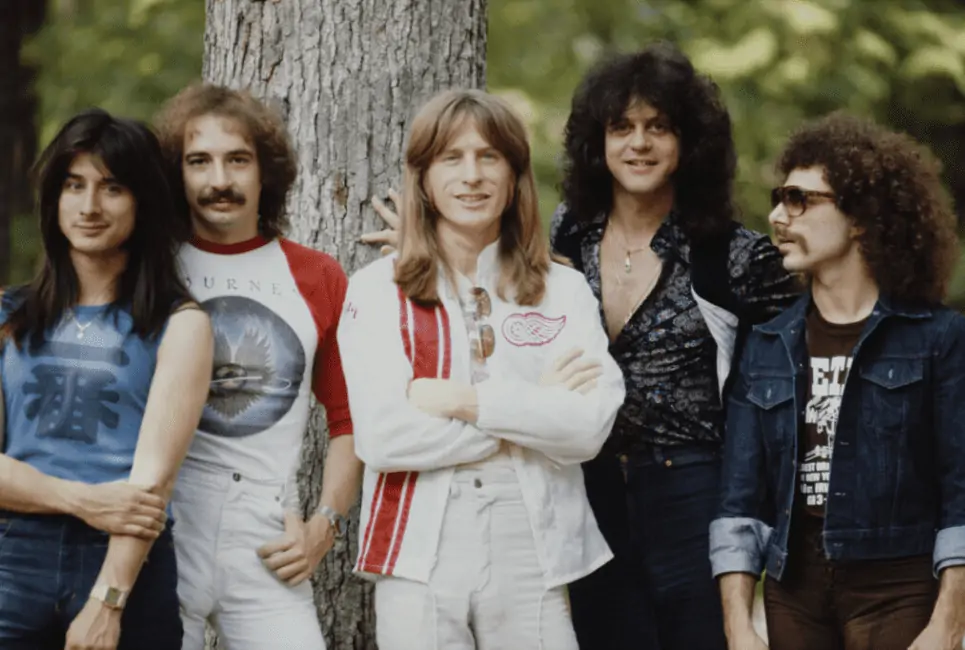
Journey Band History
- Latest Posts
- 10 Best 80s Rock Trios – When Rock Became ‘Modern’ - March 26, 2024
- 10 Best 90s Rock Trios – The Last Great Rock Trios - January 25, 2024
- Best Blues Power Trios of All Time - January 12, 2024
Journey Quick Facts Up Front
Gregg rolie, steve perry, jonathan cain, steve smith, ross valory, journey (1975); look into the future(1976); next (1977), infinity (1970), evolution (1979); departure (1980), dream, after dream (1980), escape (1981), raised in radio (1986), trail by fire (1996), arrivals (2000), revelation (2008), freedom (2022).
- Early Days Journey in their Fusion Days: Journey - Full Concert - 03/30/74 - Winterland (OFFICIAL)
- Arguably the Best Group Lineup Performing During the Escape Tour: Journey - Don’t Stop Believin’ (from Live in Houston 1981: The Escape Tour)
- A Recent Performance with Schon at the Helm. Pineda’s Vocal Performance is Stunning: Journey Live @ Lollapalooza Chicago 2021
The Journey Lawsuit & Replacements
Did journey sell out.
The glorious days of arena rock would not be as memorable without Journey. There could not be a better name for a band that went through many changes, successes, and failures and almost single-handedly rose the power ballad to the charts.
Journey’s band history is the epitome of 80s rock and the clashes between some of the most extraordinary rock musicians of the time.
Like all Journey fans, the first songs I heard were Steve Perry’s lead emotional ballads. He was the perfect singer for the ideal backing band. Yet, listening years later as a musician, I understood that it was not Steve Perry’s or Neal Schon’s Journey; the group’s creative chemistry made it all happen. Apart from the most commercially relevant period, Journey was and still stands strong. This bio might introduce you to some aspects and periods of the band that are now almost forgotten.
Journey Members You Should Know
The lineup changes are crucial to Journey’s band history. Nowadays, with only Neil Schon left as a founding member, we need to go back to the early days to understand who wrote and played the songs that made them famous.
All lineups were made up of the top rock musicians of each era. Not all, though, contribute as much as others.

Neil George Joseph Schon (born February 27, 1954, in Oklahoma) is the band’s guitar player, founding member, and occasional songwriter.
Born in a musical family, Schon soon became a child prodigy after starting playing guitar at ten and being recruited by Santana at age 17. By the time he started Journey, he had experience playing in one of the best bands in the world and was fluent in jazz, rock, and Latin music.
Neal Schon is one of the most melodic guitar players of all time. He essentially shifted my perspective of a rock solo to a musical piece that tells a story rather than a power shred, which he occasionally tastefully adds.
Schon was always the leader behind the scenes, taking a significant say in all the band’s important decisions and even personally firing and replacing members. As a solo artist, he released nine albums and founded the bands “Hardline” and “Bad English.”

Gregg Alan Rolie (born June 17, !947, in Washington) is a founding member and journey original keyboard player and vocalist. As a Santana band member, Rolie was already a senior musician by the time Schon joined. He arguably shared with Santana the same success as with Journey, singing and playing in some of their biggest hits.
He formed Journey in 1973 and co-wrote the band’s first six albums before being replaced by the pressure of Steve Perry’s musical choices.
Rolie was as essential as Schon in creating the “Journey Sound” with signature Hammond, piano sound, and a bed of synths that backed the band’s rock groove.
Rolie is one of the most prolific musicians ever, with a successful solo career after his time with the band. He founded with Journey’s ex-member “The Storm.” He was part of Ringo Star’s “All Starr Band.”
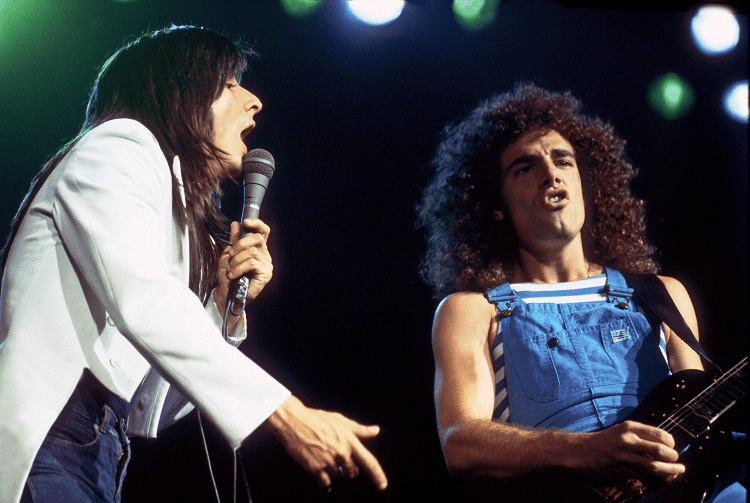
Steve Ray Perry (born January 22, 1949, in Hanford, California) was Journey’s lead singer, frontman, and main songwriter in their most successful years.
Perry’s exceptional vocal range and affinity for writing ballads and pop songs gave Journey what they needed to become the biggest arena rock band in the world. His musical beginning, though, was unsuccessful, with many failed attempts, sometimes even from misfortunes.
Manager Herbert picked up one of Perry’s demos while he had returned to working on his family’s farm and called him to perform with the band while Rober Fleischman was already hired as a singer. One song performed during soundcheck with the band sealed his place as frontman.
Perry undoubtedly came at the right time in the right band to change it all for Journey. The mental cost of fame and several misfortunes, the last a degenerative bone disease, forced him out of the band.
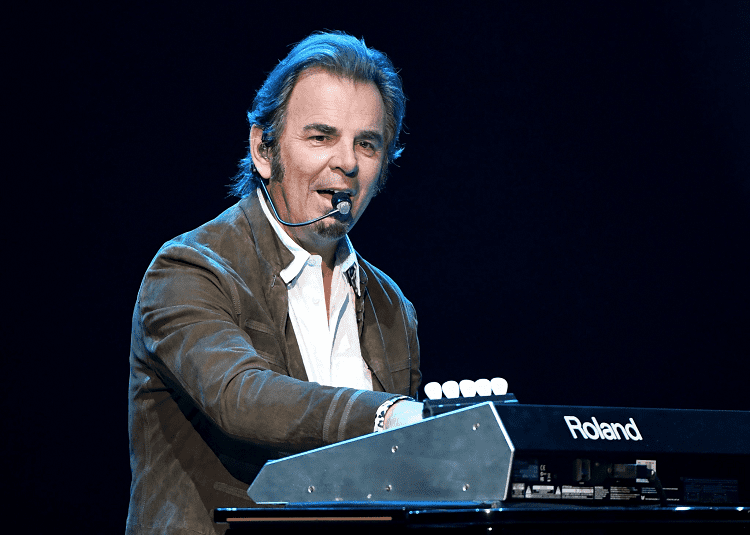
Jonathan Leonard Friga (born February 2, 1950, in Chicago, Illinois) was Journey’s most prolific keyboard player, coming in to replace Rolie and helping write the band’s most successful material.
Cain is a multi-instrumentalist who made a name for himself with the band “The Babys.” which opened for Journey. His ability to write with Perry was what convinced the singer to replace the already prolific Rolie.
Cain turned the already well-tuned Journey rhythm section into a hit-power ballad maker. Unlike Rolie, Cain’s signature is more straightforward melodic piano intros that laid the bed for tunes such as “In My Arms” or “Don’t Stop Believing.”
He was part of “Bad English” and recently started publishing Christian Rock records while serving as a Worship leader with his wife.
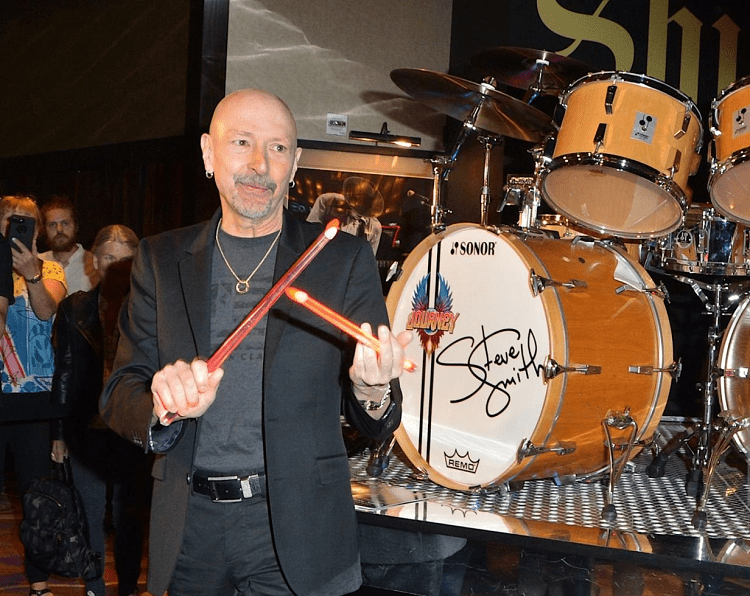
Steve Bruce Smith (born August 21, 1954, in Whitman, Massachusetts) was Journey’s drummer through their most prolific years and is widely considered one of the best musicians to ever sit behind a kit.
Smith is one of the most recorded drummers in history, having played sessions for virtually every top charting artist. He was voted five times in a row No.1 All-around Drummer from Modern Drummer magazine and inducted into the Modern Drummer Hall of Fame.
The session legend was part of three different Journey Lineups, part of Journey member’s spin-off group “The Storm,” and led his jazz-fusion groups.

Ross Lamont Valory (born February 2, 1949, in San Francisco) is a founding member of Journey and the bass player in two different lineups.
Like the other founding members, Valory played with a legendary group before forming Journey. He was part of Frumious Bandersnatch and later Steve Miller Band. He holds a special place in Journey’s history, playing in all but one studio record. Even when he was not part of the band, he was hired to write and record bass tracks.
Valory is a master bass player who uses his variation of a “Nashville Tuning,” Where the 4-string bass is tuned to B-E-A-D. He continued his career in the 90s with “The Storm,” like most original Journey members.
Journey started as the most accidental Supergroup ever in a time when the notion was still new. Ex-member of Santana and Steve Miller members got together to form their prog rock, jazz fusion band called “The Golden Gate Rhythm Section.”
The mastermind behind much of Journey’s career was their manager Herbier Herbert who previously managed Santana.
The band would perform as a backing band for Bay Area artists, with Schon and George Tickner on guitar, Rolie on Keyboards and vocals, Valory on bass, and Prairie Prince on drums. The latter would be replaced by Aynsley Dunbar around the same time Tickner quit.
The early “Journey” never achieved commercial success, mostly due to their previous musically complex influences and the lack of a strong frontman. Roli was an excellent keyboard player and vocalist, but his old-style appeal was not what the band needed to relate to young audiences.
As a band, Journey has evolved and changed more than most. It sounds like a different band from the 1st to their 14th studio album. I’ll detail most of their stunning discography according to their impact on the band and rock music.
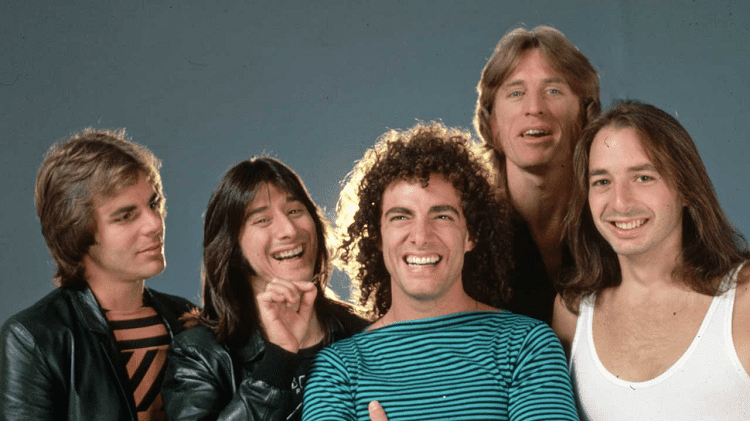
The first 3 Journey albums are a musical treat for every sophisticated rock lover. The complex compositions, delicate songwriting, and individual chops of members are three key elements that made them. There are no weak songs in any of them, yet there are not many memorable ones.
The Debut album is the ex-Santana and Steve Miller Band members having fun. The prog style might be their favorite thing to do, but as prog rock was slowly going off the charts, rock audiences needed something else.
From the first to the third album, the experimentation leaves off more place for catchy tracks. With Roli at the creative front and Herbert at the back, the band seemed to tone down their fusion influences to achieve success finally.
Commercially none of the albums did exceptionally well, and most of the band’s time was spent touring and trying to promote them.
As a guitar player and prog rock freak, I love early Journey sometimes more than the Steve Perry one. I find Neal Schon’s best guitar performances when some glimpses of jazz fusion are put in the mix.
Not to say that his later solos were less iconic, but later I found he would mainly “serve the songs” while the guitars made the song on the early Records. The same can be said about every lead instrument.
Depending on your background and taste, you could either love this version of Journey or, like many new fans, skip the three albums entirely. If you belong to the second group, I will encourage you to listen to the first song from the Debut Album, “Of a lifetime, “and you might change your mind.
The Much Needed Lead Singer
The musical chemistry, management, and inspiration were there for Journey, but their image and performances lacked the strong crowd-pleasing frontman. Behind the Keyboards, singing lead vocals, Roli did his part musically, but not stylistically.
The band’s first singer, hired with Herber’s suggestion, was glam rocker Robert Fleischman. With a high register and great stage presence, Fleischman toured successfully with Journey in 1977 until Steve Perry replaced him after he sang one in soundcheck with the band on the same tour.
Perry not only performed flawlessly exciting songs but managed to bond immediately with Neil Schon in writing their first songs together. The band changed direction and with that also their drummer. Session ace Smith replaced Dunbar, who was unhappy with the new pop direction of the band.

The first album with Perry as lead vocalist launched the band to commercial success reaching No. 21 on Billboard. “Infinity” marks the band’s change in musical direction, with Queen’s producer Roy Thomas Baker directing the shift.
The album is strong in every aspect. The songwriting, production, intent, and musicianship are top-notch. It combines the band’s collected materials and Perry’s melancholic songwriting over the years. His voice added character to the virtuoso band that needed it. My favorite song from the album is “Wheel in the Sky,” written by Fleischman and the band before Perry joined in. Perry’s voice, though, I think, does it more justice.
It starts with Neil Schon’s classically influenced guitar part and develops to a hard rock tone with a country riff. The mixture of different genres is, I think, what makes all individuals of the band shine.
The two songs that better defined the band’s musical direction were the power ballads “Lights” and “Patiently.” Slow-tempo emotional tracks with a solid vocal melody that builds up to guitar solos and live encores. Both tracks are now legendary and staples of the band’s live shows.
The following two Journey studio albums saw the band’s rise to fame, each doing better than the previous. They were headlining tours and festivals and having crowds resonate massively with their songs for the first time.
Both albums continued where “Infinity” left off, merging Perry’s now-proven hit songwriting skills with the band’s musicianship. The new frontman was now contributing to all the songs and indirectly dictating the band’s sound. Not all songs are great, though; most lack memorable hooks and fade compared to the hits.
My favorite of the two albums is “Departure.” There’s a spice more of prog rock in that album which I think brings out the best of the band. After all, the band was not originally an Arena rock act.
“Any way you want” and “Loving’, Touchin’, Squeezin;” are widely known tracks. My favorites are the less popular “Do You Recall” and “I’m Cryin,” which Perry and Rolie co-wrote.
The next record was a musical spin-off as a soundtrack album. Beyond all expectations, the band produced the most musically intricate prog rock album of their career.
It’s arguably the most polarising album of Journey’s catalog, yet one the band truly enjoyed making. The all-star band of virtuoso musicians couldn’t wait to stretch the musical muscles once again as in the old days. The result is fantastic prog rock, yet not one you would most likely hear on the radio.
I adore the compositions and musicianship on all the songs, especially the 8-minute opening track “Destiny.” In true prog fashion, extended instrumentation and solos weren’t missing.
It’s not an album for everyone, but those who like it, love it.
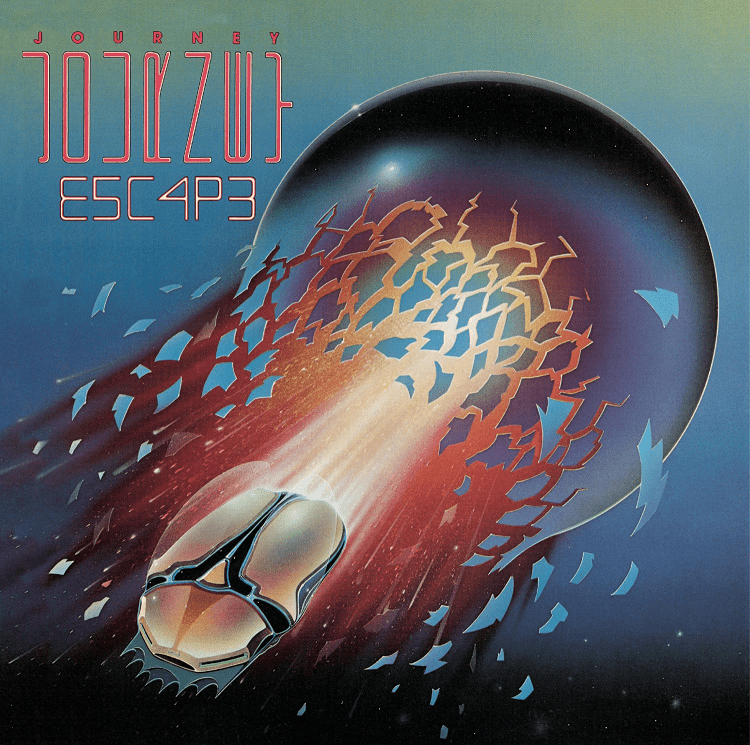
Rolie leaving the band in favor of Jonathan Cain might have consisted of one of the best musicians on earth, but it gave them the best-selling album of their career . The album almost single-handedly created the 80s sound.
The album starts with the band’s epic rock anthem, “Don’t Stop Believin’.” The song was started by Perry and Schon and later finished by Cain, who added the piano hook and hook. As Cain relieves in an interview, those were the three words his dad told him when he wanted to quit music.
The song is today the best-selling catalog track of the digital era. It’s now beyond a rock anthem to a pop culture hit. Journey’s “Free Bird” in a sense.
Cain brought in the catchy hooks and memorable piano parts and perfectly completed Perry’s ideas. The ballad “Open Arms” they wrote together differed from previous ones. It was more delicate, straightforward, catchy, and singable. After some struggles in getting it through Schoun skeptical reception of the song, it became a fan favorite.
Journey – Open Arms (Official Video – 1982)
The song that moves me the most is “Mother, Father.” Perry recorded the vocals in one mesmerizing take. What’s more impressive is that it is probably the hardest Journey song to sing.
“Espace” paved the way for the next charting album in 1983, “Frontiers.” It produced hit songs and anthems and delivered on the success of the previous albums.
Success and Downfall
Journey waited three years to release an album for the first time in their career. The continuous touring and fame were starting to kick back. Schon and Perry had also released their solo records capitalizing on Journey’s Success.
Perry, at this time, dominated the band’s musical direction completely. According to him, only Schon and Cain were suited for the band as he fired Roos Valory and, slightly later, Steve Smith. As he declared in an interview, he thought it was the best decision at the time, but he regrets doing it.
His mental health was also deteriorating as the rise to fame alienated him from the rest of the world.
Replacing both members with session musicians gave the trio more control over the songs. Perry himself took up the role of producer for the album. “Raised In Radio” is a successful attempt to top the charts through their hit song formula, but the lack of team effort is felt.
I think the album is too poppy and sacrifices the musical input of Valory and Smith for attempted hooks. There are undoubtedly hit songs such as “Girl, I Can’t Help It” and “Be Good To Yourself,” yet it’s not an album I can enjoy listening to back to back like the rest.
Commercially it did well, as expected. The band knew how to write hit songs and what the audience wanted by this time. Listening to it now, It feels like Perry’s rushed attempt to stay on top of the game and even outdo himself.
Disbandment and Attempted Comeback
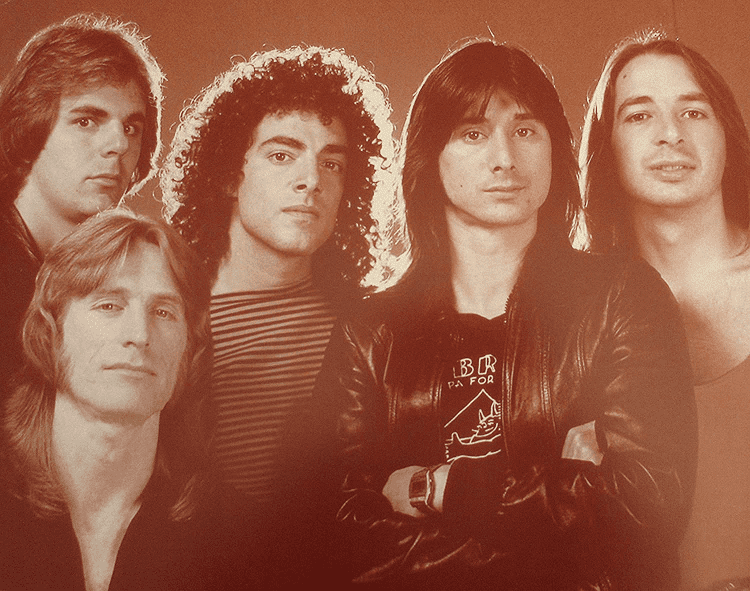
The problems with Perry’s control over the band and continuous isolated life lead to him wanting to stop everything. After his last show with the band in February 1987, he left the band and stopped Journey for almost ten years.
Perry never released an official statement, and some still wonder if the animosity between members was the main cause of his leaving. The fact that he released music after leaving the band makes me think he still wanted to make music on his own, in less frantic terms.
One thing is for sure; Journey couldn’t keep up their successful streak without Perry, so each went separate ways.
In 1995 the band reunited again at Perry’s request to fire current manager Herbert for the well-known Irving Azoff, which staged the Eagles’ comeback some years prior.
Journey was back, and a long-awaited successful album came shortly after. All members had amassed material during the years, so a musically rich album was bound to come.
“Trial by Fire” is my favorite Journey album after “Escape,” as it delivers the quality you’d expect from a great comeback. The hit song “When You Love a Woman” was surely meant to be a hit, but it’s not formulaic in any way.
Valory and Smith back on the band brought back the original backbone of the group. Putting this album back to back with its predecessor, you will notice the difference the rhythm section had in Journey after a few tracks. It gives character to songs having individual doing their thing and not hired guns.
I wish it had some more elements of hard rock, but that might be just the nostalgia from the days of “Don’t Stop Believin’.”
This album is the last Perry contribution as he was diagnosed unexpectedly with a bone condition and was unwilling to undergo surgery to continue touring.
Modern Journey

Journey is still touring and releasing albums today, with only Schon remaining an original band member. He calls the shots about the music direction and often replaces members.
After Perry distanced himself from music, the band moved on and recruited Steve Augeri as frontman, with drummer Deen Castronovo as occasional lead vocalist. Augeri was the perfect vocalist for Journey, who needed the same high-pitched power Steve Perry had.
Of the two albums Journey released with Perry, the first one is the only one that somehow matched the previous albums’ quality. It’s not the band’s most creative work, yet it’s an album with the pure Journey sound almost intact.
The album is instrumentally great but lacks strong songwriting. Augeri contributed to some songs, yet his role as the newcomer was to sing, according to Schon and Cain’s writing.
The song “World Gone Wild” is my favorite of the whole album, showing off Augeri skills at best and some great guitar work by Schon.
Commercially it did well, considering that arena rock was not the most popular genre of the early 2000s. I think that part of the merit goes to the fans’ curiosity and joy of having another Journey album.
The next album with Augeri, “Generations,” was the band’s least successful record after having him fired.
Ariel Pineda replaced Augeri in a dream story of Schon recruiting him after watching his Journey Covers on YouTube. The album was the band’s last big commercial success, even though the era of rock bands topping the charts was gone.
In true Journey style, Cain delivers a hit power ballad. “After All These Years” is just as good as any of the band’s legendary ballads and is only penalized by the rise of pop and dance music. I love how the band switched to a hard rock style for this record, flexing some fast-paced tempo grooves after a while.
Pineda seemed to be a bigger creative force than Augeri and an equally experienced live frontman. The live shows with the classic hits were and still are the band’s main focus, accumulating ridiculous amounts from the tour.
Having survived a pandemic, lawsuit, and personnel changes, Journey released their new record in more than a decade. Years of accumulated creativity resulted in an arena rock juggernaut.
Cain and Schon were in charge of the production, while drummer Narada, a prolific songwriter and singer, helped write and co-produce much of the material. It starts with the power ballad “Together We Run” and the expected melodic Cain piano intro.
Listening to album after ten other Journey pop-rock records can be too much if you’re not a die-hard fan. I would have preferred a more Prog rock Journey record as that always brings new sounds.
Notable Performances
Early days journey in their fusion days: journey – full concert – 03/30/74 – winterland (official) .
Arguably the Best Group Lineup Performing During the Escape Tour: Journey – Don’t Stop Believin’ (from Live in Houston 1981: The Escape Tour)
A Recent Performance with Schon at the Helm. Pineda’s Vocal Performance is Stunning: Journey Live @ Lollapalooza Chicago 2021
Changes in band members always come with legal issues when rights to songs are on the table. In the 80s, they maintained a good balance between members. Primarily due to solid management from Herbert, things were kept quiet.
Valory and Smith were fired from the band in 2019 after attempting to own one of the band’s corporate entities. According to the two, Perry gave them the right to hold that part of the business. Schon and Cain considered this an attempt to squeeze more money even when they were not playing.
Journey did write beautiful songs, yet the term’ corporate rock’ started to haunt them as each charting album chased the next big thing. The bad reputation arena rock gets from rock fans sometimes comes from the many attempts to write hits and please the crowd.
My stand as a rock fan with a taste from Beatles to modern metal is that Journey didn’t sell out in the sense of chasing money. Their style evolved, sometimes in search of a bigger fanbase, but still, they delivered nongeneric hits.
They developed a successful style that pushed them to recreate the success repeatedly. The members’ egos, management pressures, and fans’ high expectations had their parts.
Answer : One roadie, John Villanueva, suggested the name after failed attempts, including a radio contest involving the fans to find a proper name.
Answer : Journey had six lead singers in the band from the 70s to today.
Answer : Arena rock is considered any rock genre that can fill a stadium on a one-night event. In the mid-70s and 80s, it took a slightly different meaning, becoming a synonym for successful commercial rock bands who were best known for Power Ballads. Arena rock bands deliver great spectacles with massive crowds and often have predictable, straightforward music to resonate with as many people as possible.
- Journey (band) – Wikipedia
- Journey Documentary (Behind The Music)
- Don’t Stop Believin’: Everyman’s Journey HD
- Journey – Raised On Radio (1986 Tour Documentary)
- Journey Music
- Journey (band)
- Journey’s Neal Schon says he and Steve Perry are ‘in a good place’ before band’s 50th anniversary
- Journey Biography, Songs, & Albums | AllMusic
- Journey – The Brilliant Band Members, Stories & Struggles | Eagle 106.5
- Journey: Band Members and History
Looking for more interesting readings? Check out:
- The Police Band History
- AC/DC Band History
- R.E.M. Band History
Related Posts

The Beatles Band History
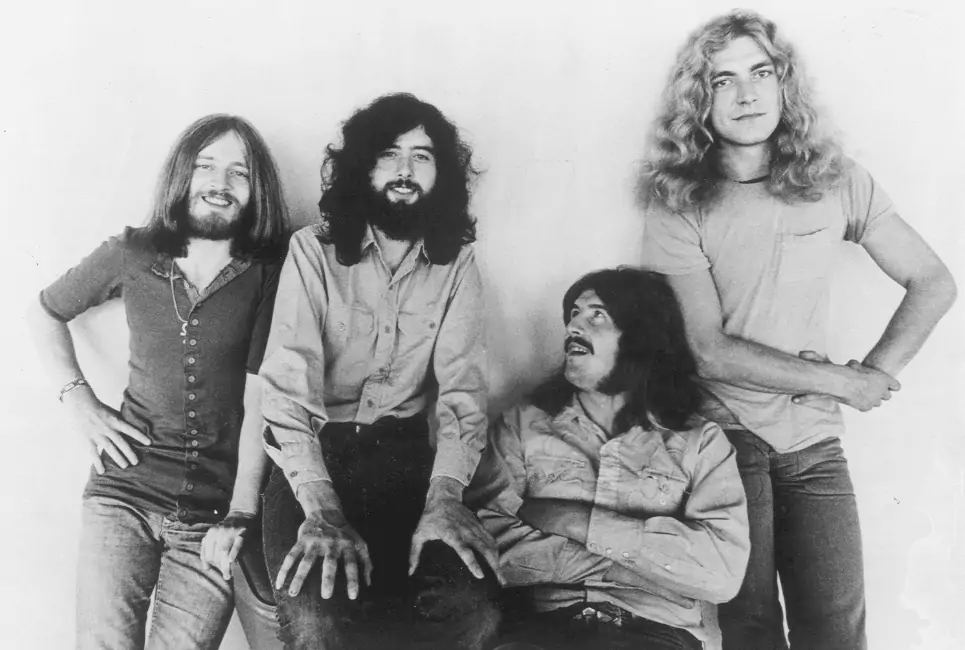
Led Zeppelin Band History
Leave a comment.
Your email address will not be published. Required fields are marked *
"I have stood on stage during some difficult situations": Journey's Jonathan Cain on band animosity, the long life of Don't Stop Believin', and why they don't play Germany
AOR giants Journey are currently on tour, and will bring the show to the UK for the first time in over a decade later this year

Considered to be a true kingpin of 1970s American hard rock, Journey need no introduction. Don’t Stop Believin’ might be more than four decades old now, but the song has brought the San Franciscan band a whole new level of fame in recent times. Below, we catch up with Jonathan Cain, who co-wrote it with guitarist Neal Schon and former singer Steve Perry.
Journey are currently on tour in the US with Def Leppard , with an 11-date arena tour lined up for the UK and Ireland later in the year. Tickets for all shows are on sale now .

Official verification is still required, but Forbes magazine recently claimed that Don’t Stop Believin’ is the most popular song of all time, so congratulations for that.
There are many, many, many great songs in our time, and that distinction is such an honour. And of course being on the road, the accolade was also pretty timely for us.
Steve Perry, one of the song’s co-writers, said he was “emotionally stunned” by the news. He’s been out of Journey since 1998. Do you or the rest of the band have much contact with him these days?
Not really, though I know him vicariously through my son-in-law Trev Lukather [son of Toto guitarist Steve] who gives me up updates. Trev often says: “Someday I’ll get you together with Steve over a cup of coffee,” to which I reply: “Send him my love” [a reference to the song Send Her My Love from Journey’s 1983 album Frontiers ]. Steve has been active singing backgrounds on people’s records, and he was on Dolly Parton’s record [ Rockstar ]. It’s good to see that happening.
As part of the band’s ongoing fiftieth anniversary celebrations, Journey’s upcoming UK tour is their first visit here since 2013.
Classic Rock Newsletter
Sign up below to get the latest from Classic Rock, plus exclusive special offers, direct to your inbox!
That’s a long time! It’s been too long. We were caught up touring here [in the US]. We would ask our management, and they’d tell us there has to be a demand. We know full well that places like Germany are not our market. Even when we go there, nobody comes. Our true fans are in the UK, and when we looked into things it was time to bring the lads back.
It’s difficult to believe that Arnel Pineda, Journey’s current vocalist, has been in the band since 2007.
After sixteen years Arnel is no longer the new guy. I call him The Crusher, because every time we throw him a challenge he crushes it. I still remember when we played with Def Leppard and it was the first time Joey [Elliott] had heard him. Joey looked at me, raised an eyebrow and said: “Woah, that kid can sing.” Steve Perry will always be recognised as the architect and the voice, but Arnel is the keeper of our legacy. We’re awfully proud of him.

Many of Journey’s songs are very demanding to perform, and the burnout rate of the band’s past singers speaks for itself, and yet Arnel is still doing great.
We brought in a voice expert from LA to work with him. This guy brought in a kind of metal straw that allows the vocal cords to warm up without putting strain on them. I was sceptical, but this thing really works. It’s genius.
Special guests on the upcoming tour are the acclaimed Illinois power-pop quartet Cheap Trick, who celebrate their own fiftieth anniversary this year. How well do you know those guys?
I toured with them a lot in my band The Babys – Cheap Trick and The Babys was a hot ticket back then [at the end of the 70s]. It was always wall-to-wall young girls. John Waite [Babys frontman] was such a huge fan, he would always want to stay on at the venue and watch Cheap Trick. They made us realise we had to step up to the next level.
There has been some well-publicised animosity within Journey [in 2022 Neal Schon filed a Cease And Desist order against Cain, whose wife, the televangelist Paula White-Cain, is the former US president Donald Trump’s spiritual advisor, after the Journey man performed Don’t Stop Believin ’ at the White House]. How does that manifest itself while the group is on tour?
We take all of that down a notch for the sake of the band. The music is louder [than the negativity]. No matter who has said what, or anything that’s going on in the background, it’s all about bringing the best show that you can bring.
Do the protagonists have separate dressing rooms on tour these days?
[Side-stepping the question] It doesn’t mess with our chemistry. I have stood on stage during some difficult situations. But once you get up there and start playing those songs, all of us in the band are where we are supposed to be. It would be selfish [to let personal issues] affect the show. We owe our fans more than that. Our fans are everything.
How many songs from Journey’s current album Freedom will be on the set-list for this tour?
Right now we’re only playing one [ Let It Rain ], but we are working on a new, new song, and if we can get that up to speed we may be playing that one too. We’ll see.
When you say ‘new, new’ you mean completely unheard, and maybe something that could be on the next album?
Brand new, right out of the box. If it gets accepted then who knows… it might be a single.
![journey biography youtube Journey - Don't Stop Believin' (Live 2009) [Official Video] - YouTube](https://img.youtube.com/vi/4Yy6pmsQ9H8/maxresdefault.jpg)
Can you share the title?
[Slightly warily] It’s called This Town . It’s about the fans. That fifty-year relationship we’ve had with them. We wrote it about their loyalty. The hook is: ‘ Tonight, it’s all about this town .’
Are you currently working on and stockpiling material for what would be a follow-up to Freedom ?
I don’t know yet. It’s so tough out there. We had hoped for better results with Freedom , even though it was cut-and-paste, a bit of an experiment during covid. The covid song I wrote with Neal, The Way We Used To Be , was tongue-in-cheek all the way, and we weren’t able to release it in time, so it didn’t get much love. I heard a lot of bad covid songs – I mean some really bad ones – so we needed to do something that was really slick. That’s when I had the idea of two lovers not being about to see one another.
What do you think of the special attention that Don’t Stop Believin’ receives, especially after its connection to a brand new audience after it appeared in the US TV series Glee , ahead of all the other songs in Journey’s catalogue?
I don’t think that’s strange. It’s always been a special song to me because it gives us all permission to dream. When I first joined the band, my message to them was that we needed to write a song that spoke to the fans. Don’t Stop Believin’ was a conscious attempt for Steve and I to bring them into our song. There’s a lot of smalltown girls and boys out there wanting to get on to the midnight train to anywhere. And you know that we broke all of the rules with that song?
In what way?
Well, the chorus only happens once, and it comes right at the end. And Neal solos even before Steve sings. And yet it became the most downloaded rock song of all time.
Who was the most surprising person to tell you that they dug Don’t Stop Believin'?
Bruce Springsteen. There was a charity gala, and Bruce, Elton Joh n and Lady Gaga sang it on stage somewhere. It’s out there on the net somewhere, you can check it out.
Dave Ling was a co-founder of Classic Rock magazine. His words have appeared in a variety of music publications, including RAW, Kerrang!, Metal Hammer, Prog, Rock Candy, Fireworks and Sounds. Dave’s life was shaped in 1974 through the purchase of a copy of Sweet’s album ‘Sweet Fanny Adams’, along with early gig experiences from Status Quo, Rush, Iron Maiden, AC/DC, Yes and Queen. As a lifelong season ticket holder of Crystal Palace FC, he is completely incapable of uttering the word ‘Br***ton’.
Most Popular
“In our heavy metal world, he’s almost as important as Elvis Presley”: Blaze Bayley remembers fellow Iron Maiden alumnus Paul Di’Anno
"The most successful symphonic metal band in the world." Every Nightwish album ranked from worst to best
Big Big Train release new Winter version of Brew & Burgh

IMAGES
COMMENTS
Jump to specific chapter using table of contents below or just LISTEN to the full article!Journey is an American rock band that formed in San Francisco in 19...
Steve Perry - Lead Singer of Journey | Biography#StevePerry #Biography #StevePerryJourney #Journey #BestVocals #StevePerryLive #StevePerry2024 Steve Perry, t...
Journey's official live video for 'Don't Stop Believin'' performed in Houston. Listen to Journey: https://journey.lnk.to/listenYDWatch more Journey videos: h...
Journey is an American rock band formed in San Francisco in 1973 by former members of Santana, the Steve Miller Band, and Frumious Bandersnatch. [7] The band as of 2024 consists of Neal Schon on guitars and vocals (the last remaining original member); Jonathan Cain on keyboards, guitars and vocals; Deen Castronovo on drums and vocals; Arnel Pineda on lead vocals; Jason Derlatka on keyboards ...
Stephen Ray Perry (born January 22, 1949) [1] is an American singer and songwriter. He was the lead singer and frontman of the rock band Journey during their most successful years from 1977 to 1987, and again from 1995 to 1998.
Dec 7, 2023 · An expansive new biography of Journey is on the way from UCR assistant managing editor Nick DeRiso that promises to delve into "every era, every album and every tour.". Available for ordering now ...
Mar 4, 2024 · Journey’s timeless classics continue to resonate with audiences of all ages, thanks to their emotional depth, infectious melodies, and inspiring lyrics. Their songs have become anthems for perseverance, love, and the power of music itself. Past Journey band members include the following: Steve Perry (1977-1998) Aynsley Dunbar (1974-1978)
Aug 6, 2022 · The session legend was part of three different Journey Lineups, part of Journey member’s spin-off group “The Storm,” and led his jazz-fusion groups. Ross Valory Ross Lamont Valory (born February 2, 1949, in San Francisco) is a founding member of Journey and the bass player in two different lineups.
Jul 21, 2024 · Journey - Don't Stop Believin' (Live 1981: Escape Tour -Â 2022 HD Remaster) - YouTube Watch On Many of Journey’s songs are very demanding to perform, and the burnout rate of the band’s past singers speaks for itself, and yet Arnel is still doing great.
"Welcome to "TheBiographyJourney" where we bring you the captivating stories of extraordinary individuals from all walks of life. Dive deep into the inspiring and often untold tales of renowned ...